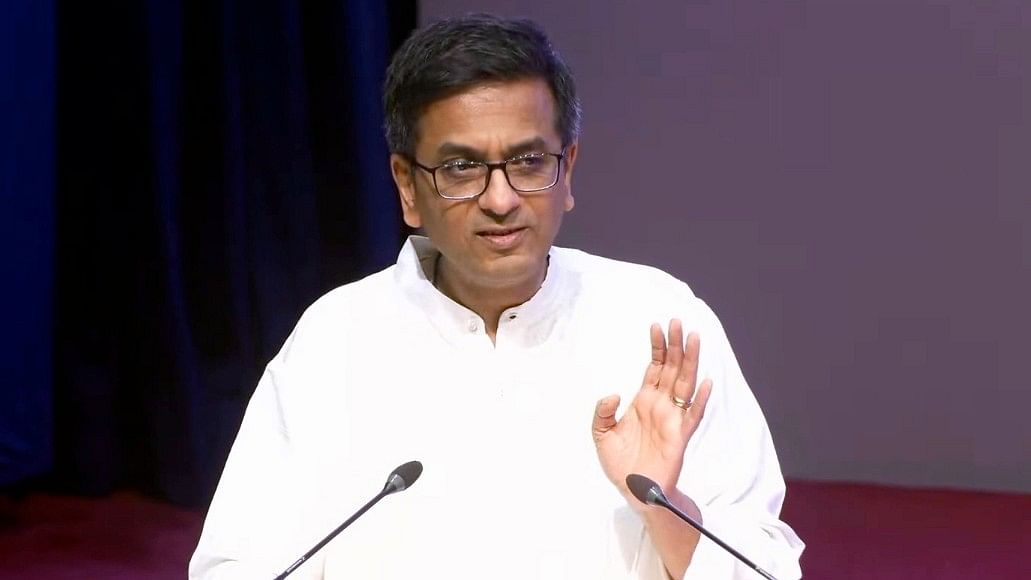
Chief Justice of India D Y Chandrachud
Credit: PTI Photo
New Delhi: The Supreme Court on Tuesday emphasised that the vision of the framers while drafting the Constitution was not to lay down a particular form of social structure or economic policy for future governments.
To scuttle this constitutional vision by imposing a single economic theory, which views the acquisition of private property by the state as the ultimate goal, would undermine the very fabric and principles of our constitutional framework, Chief Justice of India D Y Chandrachud said.
The nine judge bench by a majority view of 7:2 on Tuesday held that all privately owned properties cannot be regarded as material resources of the community.
The majority view authored by Justice Chandrachud said the Constitution was framed in broad terms to allow succeeding governments to experiment with and adopt a structure for economic governance which would subserve the policies for which it owes accountability to the electorate.
According to Dr B R Ambedkar, if the Constitution laid down a particular form of economic and social organisation, it would amount to taking away the liberty of people to decide the social organisation in which they wish to live. He opined on several occasions that economic democracy is not tied to one economic structure, such as socialism or capitalism, but to the aspiration for a ‘welfare state’, the bench pointed out.
"Thus, the role of this court is not to lay down economic policy, but to facilitate this intent of the framers to lay down the foundation for an ‘economic democracy'," the bench said.
It noted both Justice Krishna Iyer (in Ranganatha Reddy and Bhimsinghji judgments) and Justice Chinappa Reddy (in Sanjeev Coke judgment) consistently referred to the vision of the framers as the basis to advance this economic ideology as the guiding principle of the provision.
In Bhim Singhji, Justice Krishna Iyer cited Karl Marx in his judgment to observe that taking over large conglomerations of land is necessary to make Article 39 a “constitutional reality”. Interestingly, in the same decision, Justice Krishna Iyer also expressed his view about the nature of the economy and observed that our economy was “in the transitional stage … undergoing a fabian transformation”, the bench pointed out.
"Today, the Indian economy has transitioned from the dominance of public investment to the co-existence of public and private investment. The doctrinal error in the Krishna Iyer approach was, postulating a rigid economic theory, which advocates for greater state control over private resources, as the exclusive basis for constitutional governance," the CJI wrote.
He further said India’s economic trajectory indicates that the Constitution and the custodians of the Constitution – the electorate – have routinely rejected one economic dogma as being the exclusive repository of truth.
"As participants in a vibrant multi-party ‘economic democracy’, the ‘People of India’ have voted to power governments which have adopted varied economic and social policies, based on the country's evolving development priorities and challenges. The foresighted vision of our framers to establish an ‘economic democracy’ and trust the wisdom of the elected government, has been the backbone of the high-growth rate of India’s economy, making it one of the fastest-growing economies in the world," the CJI said.
